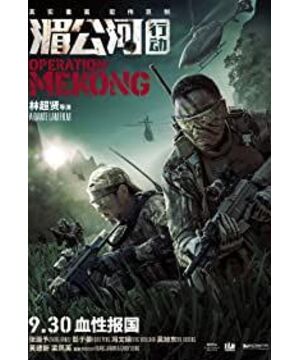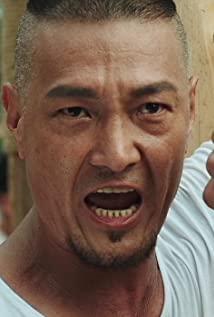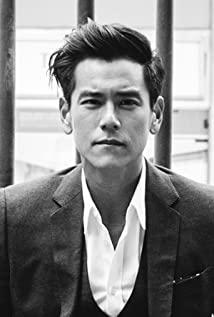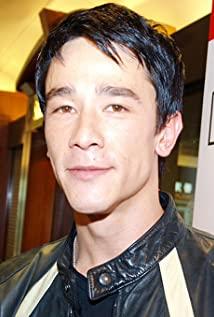When it comes to drugs, whether it is an audience who likes to read domestic crime novels or police and bandit dramas, in the drug trade, as long as the Golden Triangle is mentioned, it is definitely a first-class product. The region seems to have become synonymous with the quality of drugs, and to give an inappropriate example, drugs are to the Golden Triangle what wine is to Burgundy.
This delta is located at the junction of Thailand, Laos, and Myanmar, where the Mekong River and the Mae Sai River meet. The land is fertile, and crops can mature many times throughout the year. The crops are golden in March and April every year, hence the name "Golden Triangle". Today, the so-called "Golden Triangle" already refers to a triangular area of northeastern Myanmar, northern Thailand, and the old northwest, covering an area of about 200,000 square kilometers. Such a birthplace of drugs supplies 70% of the world's total heroin production. Its total population is more than 1 million, and more than 3,000 villages are located here. Farmers want to get rich quickly under the poor life, and most of them choose to grow opium poppy. The reason is not only the high profit of opium poppy, but also the large drug lords. In order to get farmers to cooperate with poppy cultivation, they even control crop varieties by tricking them into taking usury loans.
It is such a chaotic area that drug lords emerge in an endless stream. Even under repeated attacks by the government, there are still desperate people who take risks to obtain this high profit. It was against such a chaotic background that the Mekong tragedy occurred. Among them, the most direct number one person is Nuo Kang, the boss of the Nuo Kang drug cartel (the character in the film is named Nuo Ka).
There are many drug lords in the Golden Triangle, and Nuo Kang is a rising star. He used to be the younger brother of Kun Sha, the number one drug lord in the Golden Triangle who shocked the world in the 1970s and 1980s. Who is Khun Sa? Let's put it this way, with a military force that can compete with the government, and at its peak, it controlled 80% of the drug industry in the Golden Triangle. Jinpen Handwashing was not brought to justice, but voluntarily surrendered. After that, he started a legal business, and no one blamed him. ! It was under the drug trading model of Kunsha that Nuo Kang imitated his former boss and became the new overlord of the Golden Triangle generation around the new millennium.
At first, Nuokang only collected part of the remaining troops of Kunsha, and with the support of local ethnic militants, an armed force of nearly 100 people was established. It continues to grow and grow, and the number of people even reached more than 400 at the peak, and it is well equipped to operate in the Mekong River area. Not only does he do drugs, but he also does business in kidnapping and extortion from time to time. In addition, Kun Sha himself is insidious and cunning. He does things seriously with his eyes open, and he does a lot of tricks behind the scenes. There were once villagers who opposed some of Kun Sha's decisions, but it was nothing with his eyesight. After a few days, someone found the bodies of those villagers. The killing of 13 Chinese people in the Mekong massacre is a model of this kind of secret tricks. The reason is that the captains of "Yuxing No. 8" and "Hua Ping" refused to pay the Nuo Kang Group a monthly protection fee of several thousand yuan. Nuo Kang had asked someone to notify the two captains to interview, but the captain ignored it, so Nuo Kang Killed. First, armed hijacking of two cargo ships, controlling the crew members, then hiding a large amount of drugs prepared in advance on the ships, then pretending to notify the police, reporting the drugs on board, and finally letting the illegal anti-drug soldiers who had bought them kill and throw their bodies. Everything is a conspiracy planned by Nuo Kang.
In addition, there is another reason for Nuo Kang's killing of Chinese crew members, which is hatred of the Chinese. As early as 2006, with the assistance of China and Thailand, the Burmese government forces carried out a "successful operation" to capture the old nest of Nuo Kang, and successfully seized a large amount of methamphetamine, weapons and ammunition, causing heavy losses to the Nuo Kang Group. Even if Nuo Kang himself narrowly escaped, his heavy loss made this very careful drug lord begin to hold grudges against the Chinese. Not only that, the Chinese government’s alternative economic projects in the Golden Triangle area have led to major drug lords reducing the supply of opium. The development of the Laos Golden Triangle Special Zone has largely diversified the income sources of local residents, and trade exchanges have also increased. become more comfortable. Therefore, farmers who used to grow poppies for a living have started to grow other cash crops, which is tantamount to drawing wages from the bottom of the pot for Nuokang Group.
In this way, Nuokang has forged a relationship with Chinese businessmen represented by the Special Economic Zone, especially the "Golden Kapok Hotel". In April 2011, Nuokang kidnapped 13 Jinkapok employees and released them after receiving a ransom of $8.3 million, which further increased Nuokang's arrogance. In September 2011, Nuo Kang once again sent people to attack the Chinese ship "Wen Xing" and injured four passengers. As a result, the next day, the Thai police encircled and suppressed the Nuokang Group, resulting in the arrest of four of its subordinates. The Mekong massacre in October may be a form of revenge for the arrest of Naokang by his subordinates.
After the "10.5" incident, the whole world was shocked, and the Chinese government's plan to arrest Nuo Kang appeared imminent. At first, the plan formulated by the Chinese public security department was to rush Nuo Kang from his nest in the Daqili area of Myanmar to have close ties with the Chinese police. Cooperative Laos will be arrested again. For a scheming boy like Nuokang, the village he hides in is a small stockade in the Daqili area of Myanmar. The terrain is steep and easy to defend and difficult to attack. And ordinary people can't get close at all. The Burmese military's repeated encirclement and suppression activities have also been unsuccessful. With the Chinese military's supervision of Myanmar, the frequency of encirclement and suppression continued to increase, and Nuo Kang became vigilant. Subsequently, the glutinous kang base did begin to transfer to Laos. With the joint efforts of the police of China, Myanmar, Thailand, and Laos, a huge arresting net quickly took shape. However, due to improper communication in all aspects and the rampant gray forces, Nuo Kang escaped again and again when the police were about to succeed. So the Chinese police cast a net while the Chinese government communicated with the Myanmar side. Under such multiple pressures, on April 25, 2012, half a year later, the arrogant drug lord Nuo Kang was officially arrested in Poqiao Province, Laos. On May 10, the prisoner handover ceremony was successfully completed, and the "10.5 Massacre" was officially solved.
However, the trade volume of the Mekong River has been greatly reduced after the incident. Even under the escort of our military, many businessmen still do not want to risk their lives to travel the Mekong River waterway. Although there has been improvement in recent years, the lessons of this blood still remind us all the time: if there is no buying and selling, there will be no killing! Whether it's a pre-criminal drug addict or an abhorrent drug dealer, these are the clients that the bloodthirsty drug lord can't live without. All we can do is to pray that the victims in the kingdom of heaven can rest in peace, and take this as a warning, take actions to stay away from drugs, and stop those around us from taking drugs.
On the other hand, in China, we have a lot of strange and big cases. Nearly there is the silver serial murder case that was just solved some time ago; far away, there is the famous Nanda corpse case, which has not been solved yet; and the Pacific massacre, etc., and others. Many unjust cases, such as the Yu Xianglin case and the Zhao Zuohai case, if these cases are made into movies, they can not only discuss the legal reflection of the suspected crime, but also dig out the people's livelihood under the characteristics of the times, and even analyze the beauty and beauty of human nature. ugly. If the degree of completion is high, it can undoubtedly become a very good work. But due to various reasons, our number is pitifully small. So far, apart from Ding Sheng's "Rescue Mr. Wu", which restores the case from the perspective of the police's bravery and fearlessness, there are also Jia Zhangke's who explores the violence from the source of the crime. "Doomsday". However, the contingency of Wu Ruofu's kidnapping case adapted by Ding Sheng cannot provide a deeper elaboration on the social contradictions of the ordinary people at a deeper level. The focus is also not on this, its documentary-style shooting method is more about "restored" of the case.
Then Jia Zhangke's in-depth discussion of violence and the portrayal of more acute social contradictions are even more maverick in domestic case adaptation movies. Perhaps the ban of "Tian Destined" in China has dispelled the creator's enthusiasm for adapting real cases to a certain extent, but the strictness of the censorship department is not the main reason, just like many fans attribute the slump of domestic movies to the censorship department. This statement is actually irrational and unobjective. In my opinion, in the early days of Hollywood, there were restrictions on the "Hays Code", but there were still Hitchcock thrillers and ironic noir films. During the Republic of China, there were more domestic films. Strict censorship, and horror films like "Singing in the Midnight" have also been filmed.
Therefore, restrictions and censorship do not affect the production of excellent films, but the expression method requires some thought. Therefore, "Operation Mekong" for me is adapted from the original mainland events, and involves a profound discussion of politics, law and economy between countries. It can be said that this is a quite challenging task, and his success may be able to start a small climax of domestic adaptation of real case movies. But if the market fails, such works may fall into disrepair. Therefore, I have a feeling of coexistence of excitement and worry in my heart. What is exciting is that as a double lover of film and law, I am very much looking forward to those domestic works that are very creatively based on the big screen in the future; Yes, naturally it is whether Lin Chaoxian can successfully hand over a satisfactory answer sheet.
I haven't seen all of Lin Chaoxian's works, but I have a general understanding. In the early Hong Kong films, the tradition of handicraft was maintained, and the mode of master leading apprentices was very popular. If a newcomer wants to be a director, he will go to a mature director to work as an assistant and learn it step by step. Zheng Baorui (director of "Slaying the Wolf 2") followed Lin Lingdong, Guo Zijian (director of "Breaking the Ring") followed Weixin Ye, and Zhou Xianyang (director of "The Great Hunt") followed Jiang Zhiqiang and Tsui Hark. Before independence, Lin Chaoxian filmed with director Chen Jiashang.
Lin's first highly acclaimed work after independence was "Jianghu". This film is also one of Lin's works that I like very much. The anti-type expression of gangster films is astonishing and admirable. Leung Ka Fai performed his victory with a solo dance, the talk ended with reversal and camera pull, and various MV-style editing coincided with the film's absurd theme. Later, Lin Chaoxian made "Fighting War" to prove that even if the Chinese film circle sneers at sports-themed works, it can still have market performance. Although his previous police and gangster films like "The Witness" and "Informant" did not make much breakthroughs in Hong Kong film routines, they also established Lin Chaoxian's status in the Hong Kong film industry. The 14-year-old "Broken Wind" returned to the sports theme, and the box office word of mouth doubled.
And here I would like to specifically mention the crime film "The Demon Police" released by Lin Chaoxian in the same year. The film was shortlisted for the Panorama Section of the 64th Berlin International Film Festival. It was adapted from the once sensational shooting of Xu Bugao in Hong Kong. Routine expression makes this work mixed. He uses quick transitions to express the suddenness of events, and the extremely dark set and close-up of bloody and violent scenes reflect the horror of inner demons. The sprawling narrative lines intersect and edit many fragmentary details of life. This unusual expression method will inevitably lead to criticism or negative praise, but on the other hand, Lin Chaoxian's focus may have to shift to the social level. Real events have a huge foundation of audience familiarity, and exploring them can give audiences a stronger sense of film substitution. From this, it can be seen that Lin Chaoxian has chosen a good entry point.
I can't accurately predict whether Operation Mekong will succeed. After all, Lin's work experience is uneven, but its success can be of historical significance. I also believe that Lin Chaoxian has enough ability to control such a work. In the face of the public, there is no need to use excessive force in the audio-visual language, but only need to tell the story deeply. I think he must know this best, and I don't need to worry about it. I can only hope that this work can surprise people again and play a role in encouraging future generations.
View more about Operation Mekong reviews










